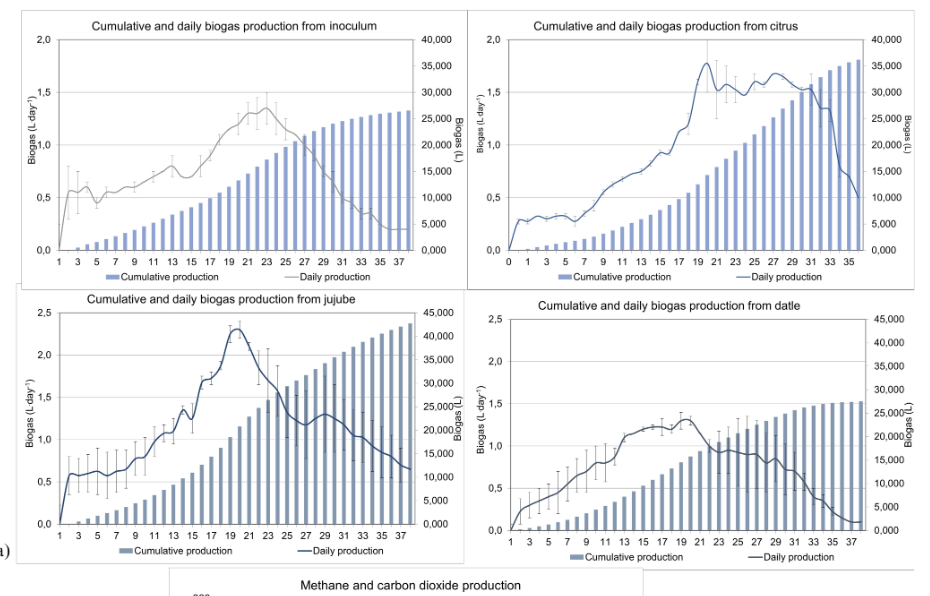New paper published! Utilizing Citrus, Date, and Jujube Wastes for Biogas Production
The Czech University of Life Sciences Prague researchers and BioResources and Technology Division (BRT) members Dr. Viktoriia Chubur, Dr. Ghaith Hasan, Assoc Prof. Dr. Yelizaveta Chernysh and Assoc Prof. Dr. Hynek Roubík recently published an article in Biofuels, Bioproducts and Biorefining.
Agricultural waste offers a promising resource for biogas production, and our latest research delves into this potential by focusing on citrus, date, and jujube substrates. Conducted under mesophilic conditions, this study evaluates the anaerobic digestion process and its effectiveness in generating biogas, providing a sustainable energy solution and addressing waste management issues.
This study explores how citrus, date, and jujube wastes can be used for sustainable energy production through anaerobic digestion. In regions like Syria, agricultural residues are abundant but underutilized. Our research highlights how these organic wastes can be converted into valuable biogas, promoting environmental sustainability and offering an alternative energy source.
Citrus Waste: Even with compounds like limonene that inhibit digestion, citrus waste remains possible for biogas production. Among the experimental ratios citrus to inoculum, better results were obtained at a ratio of 30:70.
Jujube Waste: This substrate showed higher potential for biogas and methane production among the tested substrates, especially with a 20:80 jujube-to-inoculum ratio.
Date Waste: While yielding slightly less biogas than jujube, date waste still presents a significant opportunity for methane production.
Discussion Highlights:
- Substrate Composition: The study emphasized how different compositions of waste impact biogas yields. Jujube waste, rich in cellulose and hemicellulose, was more effective than citrus and date wastes with the same ratio.
- Methane Production: The research emphasized that the methane yield varied significantly with different substrate ratios, showing the importance of optimizing these ratios.
- Inhibitory Effects: Citrus waste presented challenges due to limonene, a compound that can slow down biogas production. However, by using specific substrate-to-inoculum ratios and pretreatment methods, these effects can be mitigated. Interestingly, jujube waste, despite its phenolic compounds, demonstrated better biogas production capabilities, making it a promising waste for anaerobic digestion.
This study demonstrates that agricultural residues such as citrus, date, and jujube waste can be effectively used for biogas production, contributing to sustainable waste management and renewable energy generation in Syria.
Citation: Chubur, V.; Hasan, G.; Kára, J.; Hanzlíková, I.; Chernysh, Y.; Sedláček, J.; Wang, J.; Roubík, H. Utilization of citrus, date, and jujube substrates for anaerobic digestion processes. Biofuels, Bioproducts and Biorefining. https://doi.org/10.1002/bbb.2665
For more details on BRT, follow us on social media for regular updates and highlights.


